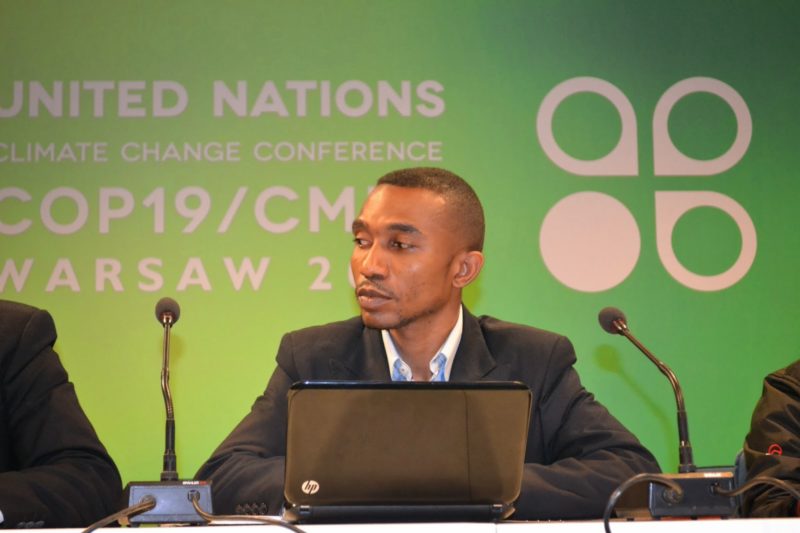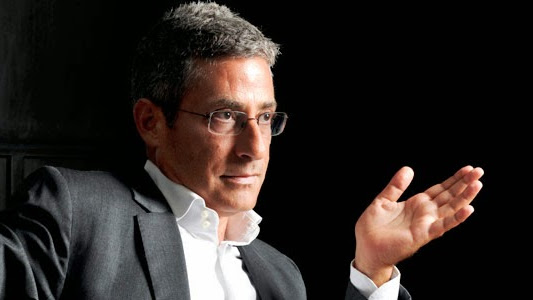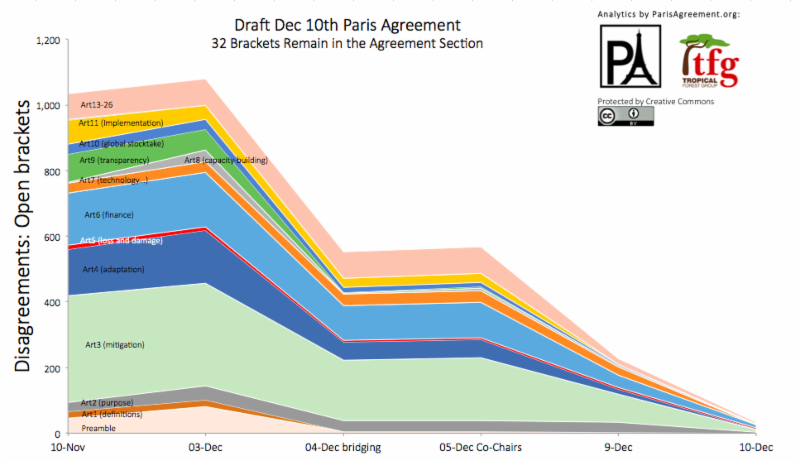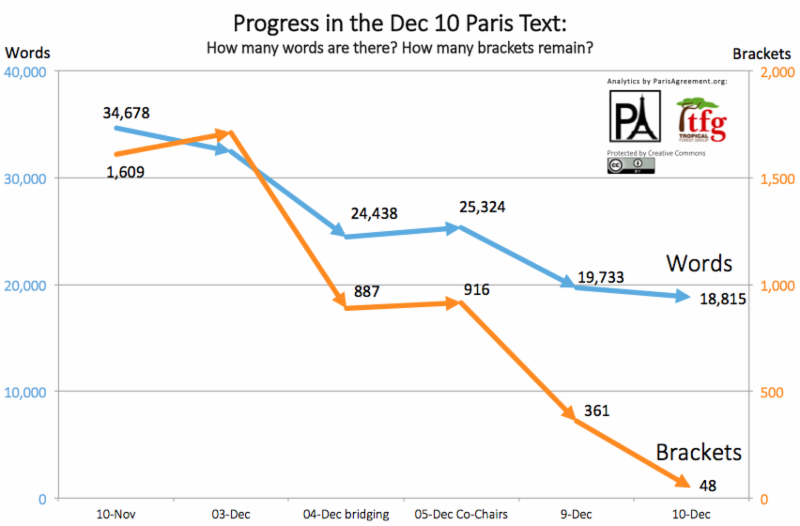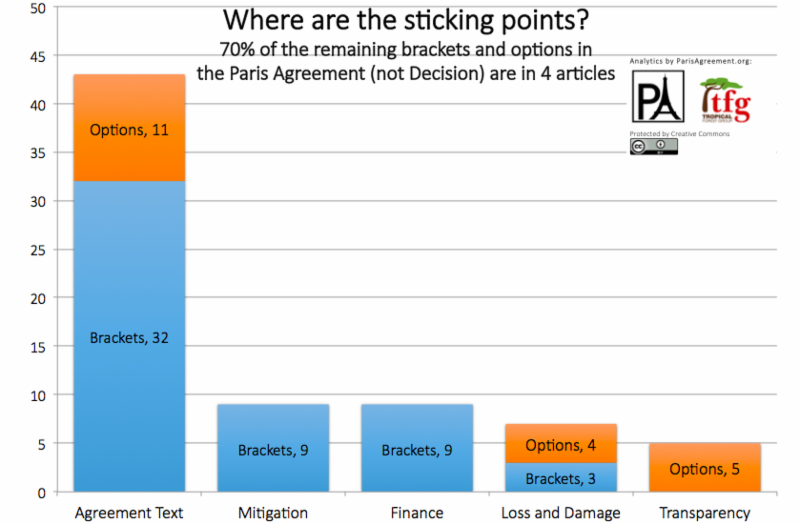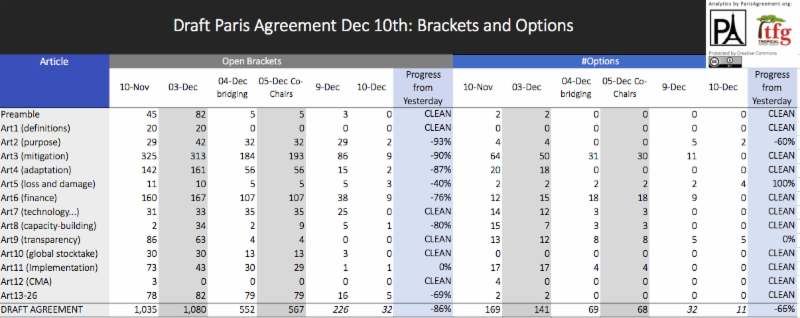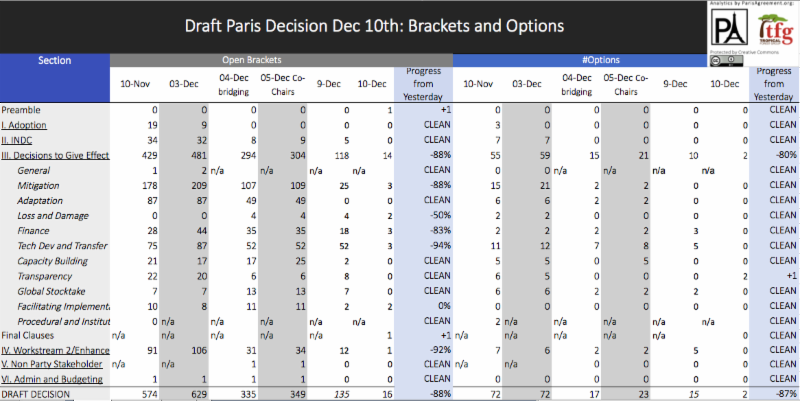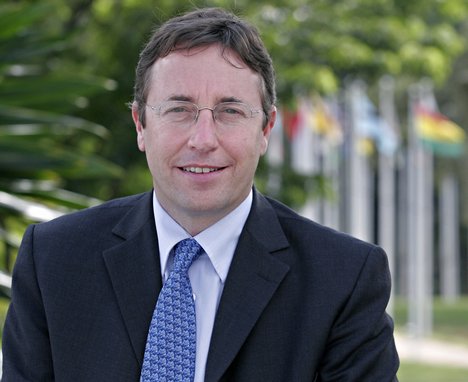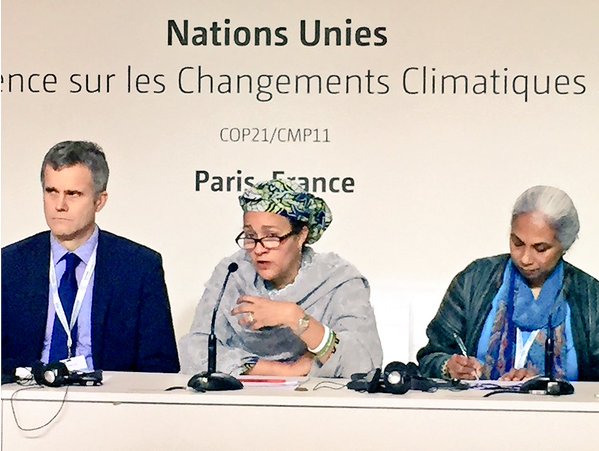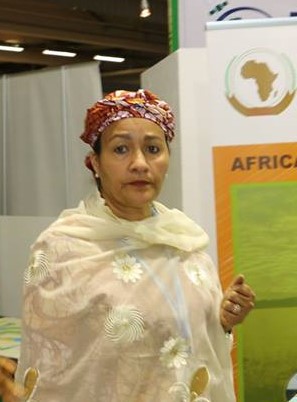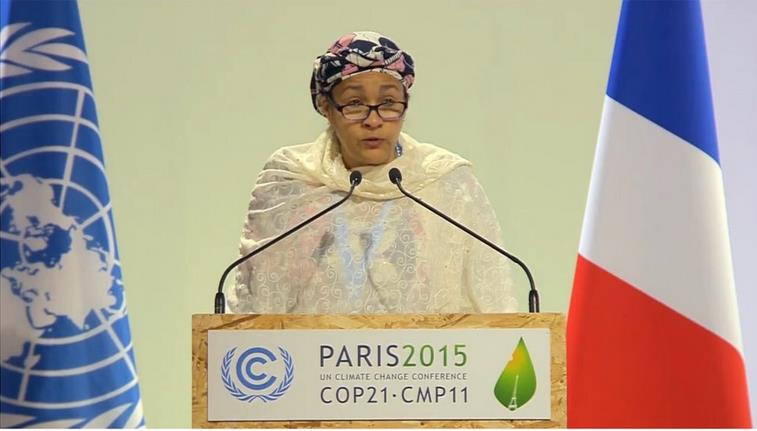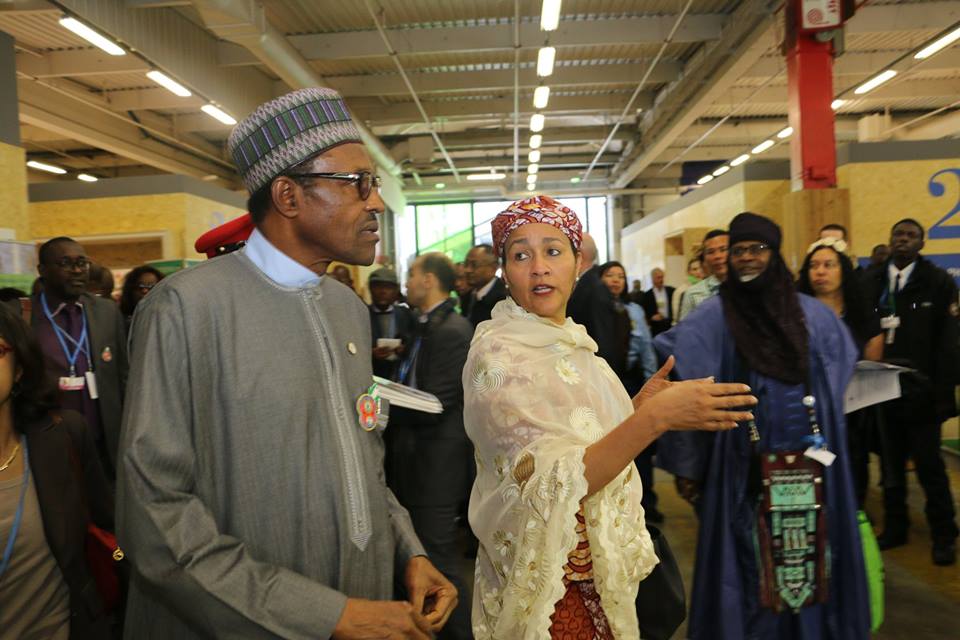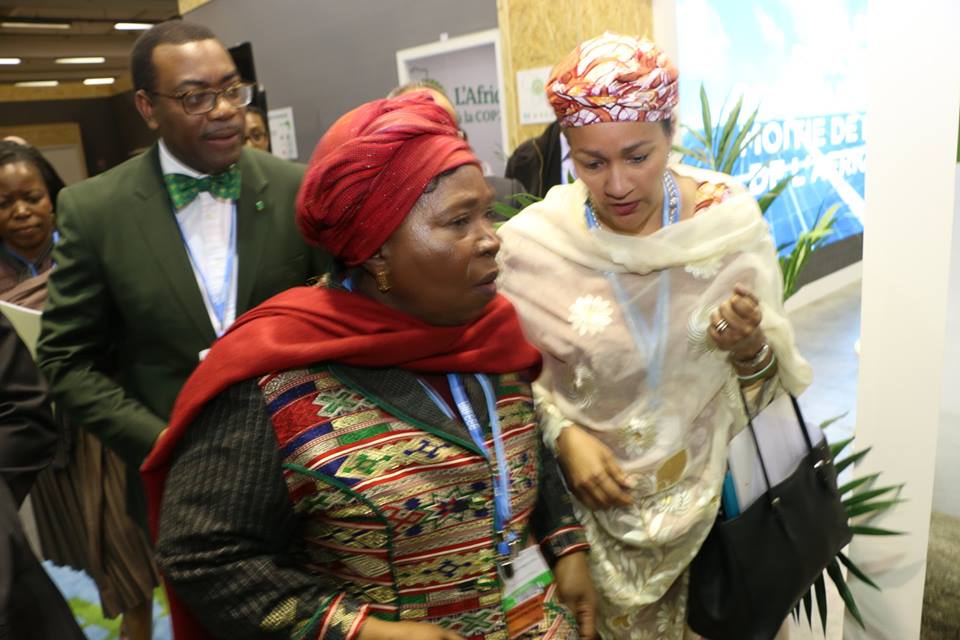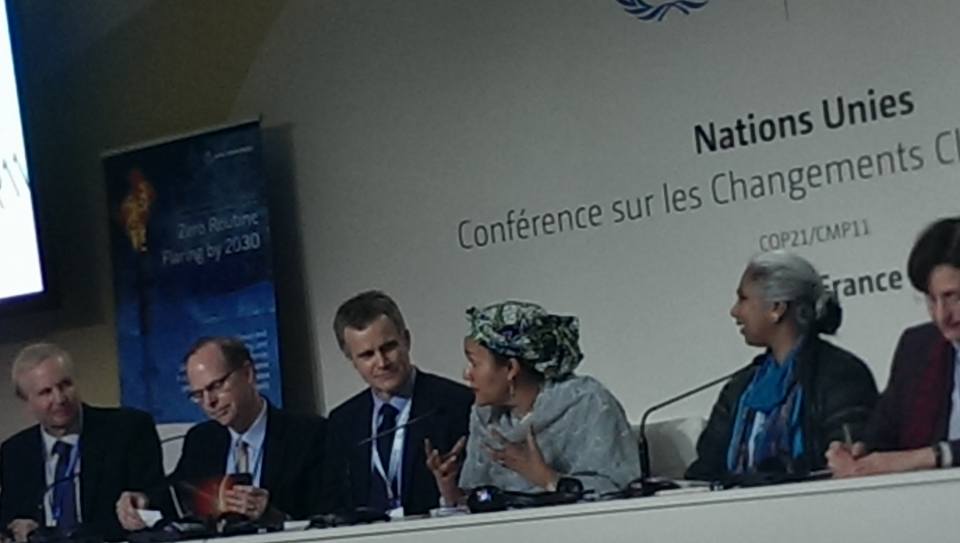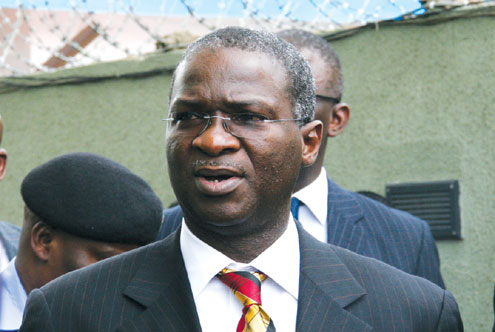An attempt by nearly 200 countries of the world to strike the first climate deal in history that will commit them to cut emissions received a massive boost on Saturday in Paris at the UN Climate Change Conference, where organisers of the global summit released details of the proposed landmark agreement.
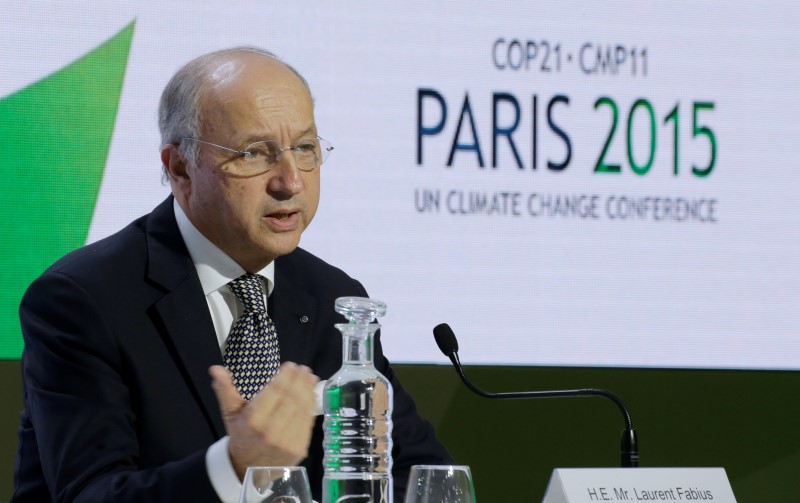
France’s Foreign Minister Laurent Fabius, while presenting the final draft agreement to international delegates after two weeks of talks in the French capital, described the final draft of the deal as fair, legally binding and on that would limit warming to “well below 2C”.
If endorsed, the global climate pact would represent “a historic turning point”, said Mr Fabius. It will take effect from 2020. The agreement can be accessed here: http://unfccc.int/resource/docs/2015/cop21/eng/l09.pdf
“It confirms our key objective, the objective which is vital, that of continuing to have a mean temperature well below two degrees and to endeavour to limit that increase to one point five degrees,” he stated.
The agreement would be reviewed every five years, he added.
The final two-part agreement is 31-page document, down from the 86 pages agreed to last February in Geneva. The agreement consists of two parts: a formal text (11 pages) that houses the durable provisions and principles of the accord, known as the Agreement; and a second part, known as the COP Decision (20 pages), which is more flexible and houses many of the technical details of the deal as well as those actions that do not require country ratification, as those actions fall under the existing provisions of the United Nations Framework Convention on Climate Change (UNFCCC).
Hopes are high for the historic deal and comments have trailed the much vaunted development. Observers believe that the text will likely be accepted at plenary by all countries without any major changes.
UN Secretary-General, Ban Ki-moon, remarked: “I would like to take this opportunity to commend the commitment, engagement and leadership of all the Heads of State, Government ministers and negotiators who have brought us so far in this very difficult negotiation.
“The end is in sight. Let us now finish the job. The whole world is watching. Billions of people are relying on your wisdom. The time has come to acknowledge that national interests are best served by acting in the global interest.
“Nature is sending urgent signals. People and countries are threatened as never before. We have to do as science dictates. We must protect the planet that sustains us. For that, we need all hands on deck.
“Over the past nine years, I have travelled to the climate front-lines, I have talked to world leaders, and I have engaged the private sector, civil society and vu lnerable gr oups. I have worked to raise awareness of the dangers of a warming world and the immense opportunities of a clean-energy, climate resilient future.
“Your leaders have listened. They came in unprecedented numbers to the beginning of this conference and gave clear instructions. They want a flexible, robust, meaningful, universal agreement that will help us rise as one to the climate challenge. The issues are many and complex. But we must not let the quest for perfection become the enemy of the public good. Today, I ask you to continue in the same good spirit of compromise that has characterized the discussions over the past two weeks.
“I count on developed countries to provide financial resources for mitigation and adaptation, and to embark decisively on a low-emissions pathway. And I ask all developing nations to play an increasingly active role, according to their capacities. I commend you all for submitting your national climate plans.
“The solutions to climate change are on the table. They are ours for the taking. Let us have the courage to grasp them. I look forward to joining you later today to celebrate an agreement that will offer new hope for safety and prosperity for all on a healthy planet.”
Samson Ogallah of Pan Africa Climate Justice Alliance (PACJA): “The Paris Agreement is weak and insufficient to address the impacts of climate change. The Agreement shows clearly that developed countries have succeeded in weaking the Convention, the principle of common but differentiated responsibilities and got away with historical responsibilities, thereby shifting the additional burden of addressing climate change to the developing countries.
“The Agreement will not keep the world to the below 1.5 degrees and this will mean more losses and damages, floods, droughts, sea level rise, and conflicts in Africa.”
Mohamed Adow, Senior Climate Advisor, Christian Aid: “For the first time in history, the whole world has made a public commitment to reduce greenhouse gas emissions and deal with the impacts of climate change. Although different countries will move at different speeds, the transition to a low carbon world is now inevitable. Governments, investors and businesses must ride this wave or be swept away by it. Negotiations were long and hard fought but the result is an agreement which will usher in a new dawn of climate-aware politics. The era of politicians burying their heads in the sand is over.”
Samantha Smith, Leader of the Global Climate and Energy Initiative, WWF: “Governments have critically agreed to keep warming well below 2C and aim to limit temperature increase to 1.5C. Everything they do from now on must be measured against that goal. And most importantly, they still need to actually deliver on that goal going forward, which must include assistance for the poor and vulnerable who will suffer from the immediate impacts of climate change. Those impacts are only getting worse and our ambition and actions must urgently match the scale of this global threat and be in line with science. Our leaders must make their actions stronger and stronger over time, in terms of mitigation, adaptation and finance. This is vital.”
Michael Brune, Executive Director, Sierra Club: “The Paris agreement is a turning point for humanity. For the first time in history, the global community agreed to action that sets the foundation to help prevent the worst consequences of the climate crisis while embracing the opportunity to exponentially grow our clean energy economy. Decisive leadership and action from President Obama and other world leaders, an increasingly powerful climate movement, and strong progress in the U.S. and globally to move off coal cleared the way for every nation to come to the table.”
Alden Meyer, Director of Policy and Strategy, Union of Concerned Scientists: “The agreement’s temperature goal, net zero emissions objective, and processes to steadily increase the ambition of national emissions reduction commitments combine to send a clear message to the fossil fuel industry: after decades of deception and denial, your efforts to block action on climate change are no longer working. Growing public concern about climate impacts, and the availability of cost-effective efficiency and renewable energy solutions are giving leaders the political will to stand up to fossil fuel polluters and put us on a path to create the global clean energy economy needed to avoid the worst impacts of climate change.”
Emma Ruby-Sachs, Acting Executive Director, Avaaz: “If agreed, this deal will represent a turning point in history, paving the way for the shift to 100% clean energy that the world wants and the planet needs. By marching in the streets, calling leaders and signing petitions, people everywhere created this moment, and now people everywhere will deliver on it to secure the future of humanity.”
Sven Harmeling, Climate Change Advocacy Coordinator, CARE International: “Climate change is already causing devastating impacts for poor people around the world. Developed countries politicised the issue of loss and damage in the Paris talks, trying to limit options for poor countries to deal with climate threats. With the Paris Agreement, all countries promise not to leave the poor behind. Developed countries leave Paris with an even higher moral obligation to scale up support for the most vulnerable people and to cut their emissions more rapidly.”
Bill McKibben, Co-Founder, 350.org: “Every government seems now to recognise that the fossil fuel era must end and soon. But the power of the fossil fuel industry is reflected in the text, which drags out the transition so far that endless climate damage will be done. Since pace is the crucial question now, activists must redouble our efforts to weaken that industry. This didn’t save the planet but it may have saved the chance of saving the planet.”
Helen Szoke, Executive Director, Oxfam: “This deal offers a frayed life-line to the world’s poorest and most vulnerable people. Only the vague promise of a new future climate funding target has been made, while the deal does not force countries to cut emissions fast enough to forestall a climate change catastrophe. This will only ramp up adaptation costs further in the future. Governments across the world have now come together in the global fight against climate change but must play catch up. We will be holding them to account with the millions of people who marched in cities all around the world so that dangerous warming is averted and the world’s poorest and most vulnerable communities get the support that they need.”
Harjeet Singh, Global Lead on Climate Change, ActionAid: “What we needed out of Paris was a deal which put the world’s poorest people first – those who are living with the constant threat of the next disaster. Yet what we have been presented with doesn’t go far enough to improve the fragile existence of millions around the world. Despite disappointment, the Paris agreement provides an important hook on which people can hang their demands. As climate change continues to worsen and affect millions more, people are beginning to demand more from their governments and ask for the transformative change to secure homes, jobs and futures. We already have the practical solutions to climate change, we now just need them to be scaled up with adequate support. Paris is only the beginning of the journey.”
Paul Cook, Advocacy Director, Tearfund: “We welcome the agreement brokered at these crucial climate talks. This is a good step forward, but let’s not be complacent. This doesn’t give us everything we need – nations will need to go further in reducing their emissions over the next few years to ensure the global temperature does not rise by more than 1.5 degrees to avoid the worst impacts of climate change. What has been exciting is to see the growing movement these talks have fostered – people from all walks of life, including the church, have raised their voices for climate action here in Paris. We will not stop this momentum, but continue to hold governments to account, to help people across the world who are seeing the devastating daily impact of climate change.”
Krishneil Narayan, Coordinator, Pacific Islands Climate Action Network: “Rapid action to address climate change is a matter of survival for my Pacific people and as such, how can we accept any compromises? That is why the Pacific region always puts forward the most ambitious proposals on the table at the negotiations. The Paris Agreement did not reflect all we asked for in the Suva Declaration on Climate Change, but Paris was never meant to be the last step. It was meant to be a progressive step in identifying new common grounds to address climate change together collectively through a new, universal agreement. The Pacific will continue be climate leaders post-COP21, and keep going strong to survive climate impacts and show leadership to the world. In the words of my Pacific community: ‘We shall overcome someday.’”
Happy Khambule, Coordinator, South African Climate Action Network: “This historic agreement has sent a strong signal that we need to move away from fossil fuels and that we have a global need to act on climate now. In South Africa, we will follow up this international agreement with actions here at home to take climate action even further. We will be working hard to push South Africa to transition to a low-carbon economy, and call on our leaders to reform fossil fuel subsidies and build more accessible renewable energy.”
David Tong, Coordinator, New Zealand Climate Action Network: “The Paris Agreement is an important step forward. Countries worldwide are acting on climate change. This agreement marks the end of the fossil fuel era and the dawn of the renewable energy era. The momentum towards 100% renewable energy future is unstoppable. Although more must be done in the coming years, the Paris negotiations show that the New Zealand government is out of step with the world. New Zealand has chosen to take the opposite side of the table from its Pacific neighbours, resisting their call for a 1.5ºC goal, blocking progress on loss and damage, and turning deaf ears to their calls for increased climate finance. And the New Zealand government has also proven that it is out of step with the people of New Zealand. As proven by the People’s Climate Marches worldwide, New Zealanders are leading the transition to a safe, just climate future. It’s time for New Zealand politicians to get with the program.”
Sanjay Vashist, Director, Climate Action Network South Asia: “The Paris agreement has clear signals to countries across the globe to now take deeper actions domestically to keep temperature rise to 1.5 Deg C. It also creates the momentum for countries like India to further scale up their already ambitious renewable energy and energy efficiency targets. Now the onus is on developed countries to fulfill their promises and scale up climate finance flows to support mitigation and adaptation efforts, especially for the most vulnerable countries.”
Tania Guillen, Coordinator, Climate Action Network Latin America: “The Paris Agreement has made some steps forward in order to face the climate crisis, but we know that more action is needed and citizens have to be considered in deciding and taking actions. It is important to see that there were clear signals about limiting the increase of temperature to 1.5C compared with pre-industrial levels. In Latin America, and special in the Central America and Caribbean region, climate change is happening. For our region, climate change is not only about future, models or scenarios, it is about our reality. The current reality that farmers and ecosystems, for example, are living. We need to know that what is agreed here in Paris, will guide strong actions to prevent climate change, but also to improve the climate resilience and to prevent the climate-induced losses and damages of those most vulnerable communities. Paris has given us a momentum, but we are clear that is not the end.”
Wendel Trio, Director, Climate Action Network Europe: “All countries have agreed upon the pathway to phase out all fossil fuels, but failed to make headway towards this common goal. This is why the hard work needs to continue after the summit. The EU now needs to live up to the Paris agreement and recalibrate the climate targets for 2030 during the next European Council in March. It also needs to cut emissions much more drastically starting now. In particular, we expect the European Council to raise the 2030 emission reduction target well beyond 40%, to improve the renewables and energy efficiency targets and to tackle fossil fuel subsidies.”
David Turnbull, Campaigns Director, Oil Change International: “The Paris climate talks present a lowest common denominator of global politics, not the aspirations of the global community. It’s the people on the streets who provide the real hope for addressing the climate crisis. People fighting for climate justice around the world are the ones who will solve this problem and they’re already making headway day by day. This year, with wins over the Keystone XL pipeline and Arctic drilling, the climate movement has begun to show its true strength. It is by continuing these fights day in and day out, year in and year out, through the voice of a growing global movement that cannot and will not be silenced, that change will happen.”
Tim Flannery, Chief Councillor, Climate Council: “Today, all of the countries in the world have agreed to act together to address the threat posed to humanity from climate change. This agreement signals the end of the fossil fuel era as the world rapidly replaces coal, oil and gas with clean energy sources. All countries, big and small, rich and poor, have acknowledged they have to act, and almost all are already doing so. This is an important and deliberate signal to businesses worldwide that there is a enormous transition underway and there will be great opportunities for innovation.”
Jaden Harris, Australian Youth Climate Coalition: “This historic moment gives young people hope that a safe climate future is still within reach and the era of fossil fuels is ending. But we’re still on track for a 3-degree warmer world, which paints a bleak future for vulnerable communities. We now have a structure to increase ambition to stay below 1.5, and young people will lead the call to use it. Our movement for climate justice is beginning to win because we’re right and we’ve worked hard. Young people at the forefront of this movement will now be scaling up our actions, ensuring nice words in Paris are matched with real progress around the world.”
May Boeve, Executive Director, 350.org: “This marks the end of the era of fossil fuels. There is no way to meet the targets laid out in this agreement without keeping coal, oil and gas in the ground. The text should send a clear signal to fossil fuel investors: divest now.
“Our job now is to hold countries to their word and accelerate the transition to 100% renewable energy. Over ten thousand of us took to the streets of Paris today to demonstrate our commitment to keep up the fight for climate justice, while many more demonstrated around the world. Our message is simple: a livable climate is a red line we’re prepared to defend.
“The final text still has some serious gaps. We’re very concerned about the exclusion of the rights of indigenous peoples, the lack of finance for loss and damage, and that while the text recognizes the importance of keeping global warming below 1.5 degrees C, the current commitments from countries still add up to well over 3 degrees of warming. These are red lines we cannot cross. After Paris, we’ll be redoubling our efforts to deliver the real solutions that science and justice demand.”
Michael Jacobs, Senior Adviser for the New Climate Economy project, and former advisor to UK Prime Minister Gordon Brown: “This is a historic moment. The world’s governments have finally understood what the science has long been telling them – we have to act now if the earth’s climate is to remain safe. Today they have committed to act – and to act together. Historians will see this as the turning point: the moment when the world started shifting decisively away from fossil fuels and towards clean and safe energy systems. Remarkably this effectively signals the end of the fossil fuel era. This is unquestionably a great success. But the work really starts now. These commitments now need to turn into policy, and policy into investment. They can congratulate themselves for 24 hours – now they need to act.”
Jennifer Morgan, World Resources Institute: “This agreement would mark a true turning point in the global effort to address climate change. The text reflects both the push for high ambition and the voices of the most vulnerable. It accelerates the energy transformation that is well underway, pointing us to a safer and stronger future.”
Monica Araya, member of the Climate Vulnerable expert group: “This agreement marks the beginning of a new era where we find good examples of climate action from all, developed and developing countries, because it is in everyone’s best interests to do so. It is no longer about who is acting and who is not, but how strong the world can act together.”
Nigel Topping, We Mean Business (WMB): “This is a remarkable diplomatic settlement and a historic economic catalyst. The world’s governments have sent a decisive signal to businesses and investors that will accelerate the shift towards a thriving, clean global economy. The Paris Agreement for net zero emissions will turn the billions of investment we’ve seen so far into the trillions the world needs to bring clean energy and prosperity to all. The diplomatic process that included businesses, investors, cities, states, regions and civil society created a powerful alliance which has clearly raised the level of ambition in the negotiations. Businesses and investors look forward to playing a continued role in turning this agreement into on the ground reality.”
Major General (ret) A M N Muniruzzaman, Chairman of Global Military Advisory Council on Climate Change (GMACCC), Bangladesh: “Military leaders, assembled under GMACCC, realising the fragility of the situation call upon leaders for urgent action to implement the Paris agreement, to save mankind from the catastrophic consequences of climate change. The Paris agreement must be more than paperwork. Its success depends on a verifiable, implementable, transparent and fair agreement which is made accountable. The military has a new, definitive, more humanitarian role, to deal with millions of people on the move, and this will only grow over time as climate impacts bite.”
Anthony Hobley, the Carbon Tracker Initiative: “A 1.5 degrees Carbon Budget means the fossil fuel era is well and truly over. There is absolutely no room for error. Fossil fuel companies must accept that they are an ex growth stock and urgently re-assess their business plans. New energy technologies have leapt down the cost curve in recent years. The effect of the momentum created in Paris means this is only going to accelerate. The need for the financial markets to fund the clean energy transition creates unparalleled opportunity for growth on a scale not seen since the industrial revolution.”
Christoph Bals, Political Director at Germanwatch: “Our experience in Germany has shown that renewable energy can be scaled up rapidly with significant economic benefit. The decarbonisation signal from the Paris Agreement will increase and accelerate these benefits, but Germany still needs to up its game. Chancellor Merkel needs to commit to a plan to phase out the use of coal within the next two decades. The Paris outcome requires developed countries to come back next year with a credible plan for reaching their 2020 targets – that just is not going to be possible without a coal phase-out.”
Chris Field, Founding Director, Carnegie Institution’s Department of Global Ecology: “The world truly reached a turning point with the historic Paris agreement, but this is not a time for self-congratulations. This is our moment to unleash ambition with new levels of innovation, building the clean energy system of the 21st century, developing sustainably, and comprehensively protecting people and the planet.”
Muhtari Aminu-Kano, Senior Policy Advisor in Poverty Reduction at Islamic Relief Worldwide, an international humanitarian organisation, and the former CEO of Nigeria’s leading national environmental NGO, the Nigerian Conservation Foundation (NCF): “Muslims living in some of the world’s poorest and most vulnerable countries can be hopeful that this climate deal provides a foundation for positive change. In August, Muslim leaders laid out in a declaration, grounded in the Qur’anic teachings, their vision of the low-carbon future necessary for the peace and prosperity of the planet: while COP21 reaffirmed that this vision is necessary and feasible with strong political willpower, the various positive announcements of the last two weeks (and last six years) prove that it is already on its way to becoming a reality. There is still much work to be done: the Muslim community, in continued solidarity with those from other faiths and humanity at large, must now encourage those in Paris and beyond to live out their pledges and take responsibility as stewards of the Earth.”
Rob Bernard, Chief Environmental Strategist, Microsoft: “Microsoft stands with the many voices within the private and public sectors urging the negotiators in Paris to come to a final agreement on climate change. Reaching agreement on a long-term goal framework for cutting carbon emissions and achieving GHG neutrality is critical to address climate change. It will also provide the certainty required for corporations around the world to accelerate their low-carbon investments and foster the creation of a true low-carbon global economy.”
Kathleen McLaughlin, chief sustainability officer for Wal-Mart Stores, Inc.: “We believe climate change is an urgent and pressing challenge, and it is clear that we must all do our part to reduce, avoid and mitigate the impact of rising greenhouse gas (GHG) levels. That’s why we support the UN’s call for the U.S. corporate sector to commit to science-based targets to reduce emissions. In addition, we have already successfully decoupled our growth from emissions, and recently announced that we exceeded our goal to reduce 20 MMT of GHG emissions from our supply chain.”
Kevin Rabinovitch, Global Sustainability Director, Mars Incorporated: “Back in October, we joined with the rest of the food and drink industry calling on global leaders to embrace the opportunity presented in Paris. Now really is the time for talk to become action and to meaningfully address the reality of climate change. Global policy makers should think big. Because big thinking leads to big results. Having a long term science based target will drive ideas and innovation, ultimately making what may have seemed impossible – possible. We are on the cusp of a deal that can change the world. And as a business we are committed to tackling the climate challenges that face us. We hope that global leaders will do the same.”
Professor Peng Gong, Co-Chair, Lancet Commission on Health and Climate Change, Tsinghua University, Beijing: “Beijing’s first-ever ‘red alert’ this week, called due to dangerous levels of air pollution in the city, is a clear symbol of the crucial importance of a strong climate deal here in Paris. Concerted action on climate change, particularly through a transition to clean energy, has immense potential to protect respiratory and cardiovascular health and to improve quality of life. In China, it is estimated that over 4000 people die every day as a result of air pollution, much of which comes from burning coal, and worldwide, air pollution is responsible for 7 million deaths every year: a shocking one in eight of all deaths. By accelerating the transition to healthy renewable energy sources and continuing to scale up climate ambition over the coming years, we can protect millions of people from air pollution as well as the serious health impacts of climate change.”
Dr. Xavier Deau, Former-President of the World Medical Association: “We the physicians have the ethical duty to stand for the health of the population, so do all the politicians here in France today. We leave Paris with a strong public health agreement and are encouraged to see elements crucial to the protection of health central to the final agreement. Millions of physicians around the world have their eyes on Paris and are now looking forward and calling on their governments to get to work protecting the health of their populations.”
Mr José Luis Castro, Executive Director of the International Union Against Tuberculosis and Lung Disease: “The Paris Climate Agreement cements a decisive call for concerted action to reduce emissions which are toxic to human and planetary health. It is now the duty of the health community to work with others to ensure that these emissions are dramatically reduced – to reduce exposure to leading NCD risk factors, limit global warming, and promote health for all.”
Ms Johanna Ralston, CEO of the World Heart Federation: “The adoption of the Paris Climate Agreement and its embedded references to health mean that NCDs and other health issues can no longer be side-lined in the global response to climate change. The NCD Alliance and its Federations are dedicated to ensuring a comprehensive response to create sustainable environments in which we can live, work and prosper.”
Ms Katie Dain, Executive Director, NCD Alliance: “The adoption of the Paris agreement is an unprecedented victory for people and planet, and a catalyst for the next phase of action. Now, all of government and all of society must come together in a coordinated response to mitigate the impacts of global warming, NCDs and ill-health.”
Professor Hugh Montgomery, Co-Chair of the Lancet Commission on Health and Climate Change: “The impact of climate change on everything from food production to heat stress and water scarcity means it poses the single biggest threat to global health. This agreement is incredibly important for beginning to ease that health burden, ultimately saving lives. It will also set us on a path to a cleaner, less polluted world which in turn reduces costs for our healthcare systems.”
Dr. Diarmid Campbell-Lendrum, Climate Change Lead, World Health Organisation: “Every tonne of carbon that we put into the atmosphere turns up the planet’s thermostat, and increases risks to health. The actions that we need to take to reduce climate change would also help clean up our air and our water, and save lives. To take a medical analogy: We already have good treatments available for climate change, but we are late in starting the course. The Paris Agreement helps us take this forward and is a crucial step in protecting our climate and our health.”
Dr. Bettina Menne, Climate Lead, WHO Europe: “As doctors, nurses, and other health professionals, it is our duty to safeguard the health of our families and communities. The Paris Agreement takes us one step closer to securing a future which protects the public from the impacts of climate change – the defining health issue of this century. Today, we are leaving France with a deal that bolsters community resilience, strengthens our health systems, and helps to tackle inequalities.”
Myles Allen, University of Oxford: Achieving a balance between sources and sinks of greenhouse gases in the second half of this century will require net carbon dioxide emissions to be reduced, in effect, to zero. It seems governments understand this, even if they couldn’t quite bring themselves to say so. To have a good chance of staying below 2 degrees, we need to aim for 1.5 degrees anyway, and it is sensible to acknowledge that 2 degrees itself is hardly “safe”. So, all told, a great outcome. Chapeau to French diplomacy.
Johan Rockström, Executive Director, the Stockholm Resilience Centre: This agreement is a turning point for a world transformation within a 1.5-2°C safe operating space on Earth. Paris is a global starting point. Now we need action consistent with science to reach decarbonisation by 2050 and sustainable development.
Diana Liverman, Director, Institute of the Environment, University of Arizona: “The Paris agreement is a significant step in reducing the risks of anthropogenic climate change but it certainly does not eliminate them. We still face serious impacts. The current national pledges (INDCs) for emission reductions take us above 2 deg C. The agreement suggests these pledges may not be revised until 2018 by which time we will have burned even more fossil fuels with yet more commitment to warming.
“This makes funding for adaptation and loss and damage from climate change even more urgent. Both are mentioned in the agreement but there is no indication of how much of the $100 billion a year in finance promised to developing countries in the agreement will be allocated to the vulnerable to cope with the impacts of climate change. It also means that subnational, individual and private sector efforts to reduce emissions are important, especially if they contribute to emission reductions beyond national pledges.
“The Intergovernmental Panel on Climate Change is invited to provide a special report in 2018 on the impacts of global warming of 1.5 °C above pre-industrial levels and related global greenhouse gas emission pathways. The scientific community will need to focus efforts on that right away as there is still a lot we need to understand about impacts in a world at 1.5 deg C, especially patterns of precipitation and impacts on key sectors, vulnerable groups, and regions. And we should start studying how the planet can survive peak temperatures and then recover.
“The Paris agreement preamble recognizes obligations for countries to respect, promote and consider human rights, the right to health, the rights of indigenous peoples, local communities, migrants, children, persons with disabilities and people in vulnerable situations and the right to development, as well as gender equality, empowerment of women and intergenerational equity. This recognition of rights and particular groups is a modest win for many concerned with climate justice, but will now have to be translated into action so that mitigation, adaptation, loss and damage, finance and technology transfer explicitly consider how these policies affect, and hopefully benefit, human rights, women and other groups.”
John Schellnhuber, Director of the Potsdam Institute for Climate Impact Research: “If agreed and implemented, this means bringing down greenhouse-gas emissions to net zero within a few decades. It is in line with the scientific evidence we presented of what would have to be done to limit climate risks such as weather extremes and sea-level rise. To stabilise our climate, CO2 emissions have to peak well before 2030 and should be eliminated as soon as possible after 2050. Technologies such as bio-energy and carbon capture and storage as well as afforestation can play a role to compensate for residual emissions, but cutting CO2 is key. Governments can indeed write history today, so future generations will remember the Paris summit for centuries to come.”
Joeri Rogelj (IIASA, UNEP Emissions Gap Report Lead Author): “The new Article 4 text is clearer in scientific terms than what we had before. Importantly, the benchmarks in terms of global peaking and global emissions reductions are consistent with the 1.5°C and 2°C temperature targets. Much remains to be done and it is encouraging to see that this agreement puts into place a process that could deliver this ambition.
“Climate action has been delayed tremendously over recent decades and, even today, emissions are still increasing. Limiting warming to 1.5°C is an aspiration we will not be able to deliver if we are unable to scale up action in the next decade.
“Technologies that can remove carbon dioxide from the atmosphere will become indispensable for attaining this long-term goal. The negative emissions technologies required to limit warming to 1.5°C by the end of the century are uncertain. It therefore makes scientific sense to increase climate action.
“Aiming to limit warming to 1.5°C means that we need to scale up action in the near term. If some technologies do not prove viable in the longer term, then near-term reductions might well be the only way we can still manage to stay well below two degrees.”
Steffen Kallbekken, Research Director (CICERO): “The greatest achievement of this process is that more than 180 countries have submitted national climate policy goals. Nevertheless, this is an historic agreement that sends a clear signal to policy makers, businesses and investors to start the transition to a low carbon and climate resilient society.
“However, estimates suggest that current pledges will result in a 2.7 and 3.7 degrees temperature increase. In order to limit climate change further, efforts must be ramped up. Importantly, countries will submit new climate policy goals every five years. Each time countries submit a new goal, the new goal must be more ambitious than the previous goal.
“The Paris Agreement aims to limit warming to 2C above pre-industrial levels and to “pursue efforts to limit the temperature increase to 1.5C”. This reflects growing concern over the impacts of climate change also at levels of warming below 2 degrees. The ambitious temperature goal is, however, not matched by an equally ambitious mitigation goal. The agreement states that countries should aim to peak their emissions as soon as possible, decline thereafter, and – in the second half of the century – balance emissions and sinks.
“This does not send a clear signal about the level and timing of emission cuts, and does not provide a useful yardstick against which to measure progress. While not inconsistent with science, this does not reflect the best available science. The IPCC concluded that in order to have a likely chance of limiting warming to 2 degrees, emissions would have to be cut by 40 to 70 percent by 2050 (as compared to 2010). To reach the 1.5 degree target the emission cuts would have to be substantially larger, on the order of 70-95% by 2050.”
Kumi Naidoo, executive director, Greenpeace International: “The wheel of climate action turns slowly, but in Paris it has turned. This deal puts the fossil fuel industry on the wrong side of history. “There’s much in the text that has been diluted and polluted by the people who despoil our planet, but it contains a new imperative to limit temperature rises to 1.5 degrees. That single number, and the new goal of net zero emissions by the second half of this century, will cause consternation in the boardrooms of coal companies and the palaces of oil-exporting states.
“Now comes the great task of this century. How do we meet this new goal? The measures outlined in Paris simply do not get us there. We have a 1.5 degree wall to climb, but the ladder isn’t long enough. The emissions targets on the table aren’t big enough, and the deal doesn’t do enough to change that. The new goal of net zero greenhouse gas emissions by the second half of the century effectively means we need to phase out fossil fuels – the easiest to cut – by 2050.
“There’s not enough in this deal for the nations and people on the frontlines of climate change. It contains an inherent, ingrained injustice. The nations which caused this problem have promised too little help to the people who are already losing their lives and livelihoods.
“This deal alone won’t dig us out the hole we’re in, but it makes the sides less steep. To pull us free of fossil fuels we are going to need to mobilise in ever greater numbers. This year the climate movement beat the Keystone pipeline, we kicked Shell out of the Arctic and put coal into terminal decline. We stand for a future powered by renewable energy, and it is a future we will win. In the coming years new political leaders will come to power, and many of them will stand against us and our goals. They will wield great power, but so will we. For us, Paris was always a stop on an ongoing journey. Ultimately our fate will be decided over the coming decades by the collective courage of our species. I believe we will succeed.”
Nicholas Stern, Chair of the Grantham Research Institute on Climate Change and the Environment and ESRC Centre for Climate Change Economics and Policy at the London School of Economics and Political Science, and President of the British Academy: “This is a historic moment, not just for us and our world today, but for our children, our grandchildren and future generations. The Paris Agreement is a turning point in the world’s fight against unmanaged climate change, which threatens prosperity and well-being among both rich and poor countries. The Agreement creates enormous opportunities as countries begin to accelerate along the path towards low-carbon economic development and growth.
“The commitment to limit the rise in global warming to well below 2 centigrade degrees, and to pursue a limit of 1.5 centigrade degrees, recognises the enormous risks we face from growing levels of carbon dioxide and other greenhouse gases in the atmosphere. And it acknowledges that the world will need to reach net zero annual emissions of greenhouse gases in the second half of the century. Importantly, the Agreement takes into account that current pledges for emissions limits in 2030 fall short of the collective ambition required and so it includes a commitment by countries to review every five years their efforts to reduce annual emissions of greenhouse gases and to ramp up their emissions cuts. And it recognises that that rich countries are expected to mobilise more financial support to help poor countries make the transition to a low-carbon economy and become more climate-resilient. Increased investments will be needed, particularly in infrastructure, and the multilateral financial institutions, such as the World Bank and the regional development banks, must play a leading role in scaling up finance and bringing down the costs of capital.
“National, and local governments, cities and businesses must now raise their efforts to match the ambition of this Agreement. Cities and businesses have been strongly represented at the Paris climate change summit and have played an important role in urging governments to achieve a strong agreement, and emphasising the important role of innovation in creating a low-carbon economy. This Agreement, together with the Sustainable Development Goals, should allow countries to overcome both climate change and poverty, the two defining challenges of our generation. Now is the time for us to seize the opportunity of a brighter, low-carbon and climate-resilient future.”
Corinne Le Quéré, Professor of Climate Change Science and Policy at the University of East Anglia and Director of the Tyndall Centre for Climate Change Research: “The final draft text recognises the imperatives of the science community to tackle climate change. The three key elements to do it are there in some form: keep warming well below two degrees, practically move away from fossil fuels, and review each country’s contribution every five years so they scale up to the challenge. The emissions cuts promised by countries now are still wholly insufficient, but the agreement as a whole sends a strong message to businesses, investors, and citizens that new energy is clean and fossil fuels belong to the past. There is a lot of work ahead of us to make this happen.”
Dr. Andrew Steer, President & CEO, World Resources Institute: “The City of Light is now the City of Hope for climate change. Leaders came to Paris with serious determination to get a strong climate agreement and that’s precisely what’s happened. While not sufficient to solve the problem alone, the agreement puts us on a path where a solution is possible. The Paris Agreement has the power to send loud, clear signals to economic markets that there’s no turning back from the transition to a zero-carbon economy. The agreement will be good for people, good for the economy, and good for the planet.
“The Paris talks have already delivered a sizable impact. It builds on the foundation of national climate commitments by more than 185 countries. It reflects the groundswell of activity in capitals, cities, board rooms, stock markets, forests and fields that complement the global and national actions.
“Yet, our work is far from over. Over the coming months, we will join with our partners to build on the foundation created here. The shift from commitment into action will be even harder and take even more determination. But for today at least we rest a little easier knowing that the world will be stronger and safer for our children and future generations.”
Jennifer Morgan, Global Director, Climate Programme, World Resources Institute: “It took hard work, grit and guts, but countries have finally united around a historic agreement that marks a turning point on the climate crisis. The Paris Agreement marks a new form of international cooperation – one where developed and developing countries are united by a common and fair framework. The agreement is both ambitious and powered by the voices of the most vulnerable.
“Of course, like all tough negotiations, we cannot say we came away with everything we wanted. And there is much work to be done. The agreement includes clear signals: a commitment to come back to the table every five years to review and strengthen country commitments; a long-term signal about the inevitable shift to a zero-carbon economy; and financial support for vulnerable countries that will be scaled up over time.
“We can enjoy this moment, but there is little time to rest. World leaders need to build on the momentum created by the Paris moment and move even faster and further toward a decarbonised economy.
“In Paris, the world has delivered a clear message: we are united in our determination, we stand together, and we will push forward to create a safer, healthier and more prosperous future.”

